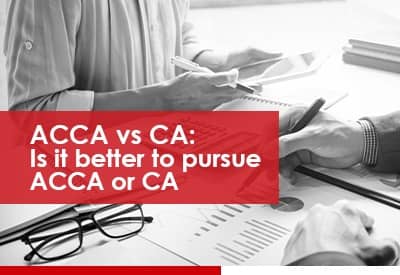Tips to Study Accounting

How to study ACCA while working?
March 4, 2022
Benefits of doing CMA Certification
March 18, 2022Here are 25 Tips and tricks to help you study and pass your accounting examinations. More success in accounting examinations can be achieved by following these simple tips, which apply to all ACCA Examinations. I will be covering paper-specific advice in another composition.
Still, care must be taken when studying the suggested answers. Originally, the answers may only reflect the syllabus, laws, and norms in place at the time of separate examination. Test accoutrements from ACCA-approved publishers may be more applicable for the practice of subjects that are constantly evolving similar to Financial Reporting and Taxation.
Secondly, don't waste time learning gobbets of the model answers since they've been handed for the purpose of guidance only. Examiner cannot conceivably anticipate a pupil to produce an answer of similar quality and depth under test conditions. Still, you should try to learn the general content, sense, inflow, style, and structure of the model answers and try to reproduce those rates in a test.
Following are the above accounting study tips and tricks with determination help to achieve success in the exams. However, if you are still finding it difficult to pass ACCA accounting exams feel free to contact us, we will guide you in the right way.
- Planning:
- Familiarity with Syllabus and Structure
- Examiner's Approach Interview
- ACCA Approved Study Textbooks
- Ideal Acquainted Approach:
- Generalities
- Seek help:
- Past Papers Practice:
Still, care must be taken when studying the suggested answers. Originally, the answers may only reflect the syllabus, laws, and norms in place at the time of separate examination. Test accoutrements from ACCA-approved publishers may be more applicable for the practice of subjects that are constantly evolving similar to Financial Reporting and Taxation.
Secondly, don't waste time learning gobbets of the model answers since they've been handed for the purpose of guidance only. Examiner cannot conceivably anticipate a pupil to produce an answer of similar quality and depth under test conditions. Still, you should try to learn the general content, sense, inflow, style, and structure of the model answers and try to reproduce those rates in a test.
- Examiner Reports:
- Marking Schemes:
- Test Paper Analysis:
- Examiner Analysis Interview:
- Specialized Articles:
- Modification:
- Visit the Test Centre:
- Sleep well before the test:
- Fear Control:
- Reading Time:
- Question Conditions
- Answer to the Point:
- Plan your Answers:
- Grease the Examiner:
- Don't leave any questions Unanswered:
- Review:
- After the Test:
Following are the above accounting study tips and tricks with determination help to achieve success in the exams. However, if you are still finding it difficult to pass ACCA accounting exams feel free to contact us, we will guide you in the right way.



